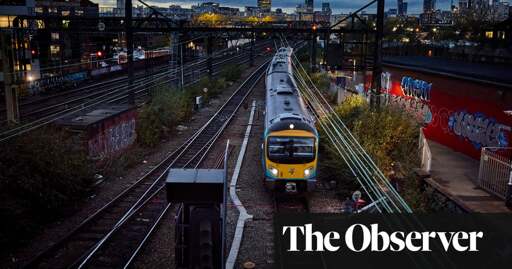- cross-posted to:
- [email protected]
- cross-posted to:
- [email protected]
Mayors of big cities and regions across England will be able to take control of rail services for the first time so they can tailor them to their areas’ economic needs, under devolution plans to be announced by ministers on Monday.
A white paper to be unveiled by the deputy prime minister, Angela Rayner, will pave the way for metro mayors to take a role in governing, managing, planning and developing the rail network.
This will allow them to develop fully integrated contactless travel along the lines of Transport for London.
At the same time the white paper is expected to say that all areas covered by two-tier county and district councils will be asked to submit plans for mergers. This is likely to lead to the scrapping of all districts and the creation of unitary authorities with about 500,000 people in each.
…
Government sources said the English devolution white paper would allow people to use contactless payment systems to board trains, then buses and trams with just one tap in and out, rather than having to pay for each as separate journeys. The changes could mean more e-bike docking stations closer to rail links, as a further move toward full integration.
…
Under the proposals, mayors will work in partnership with Great British Railways, the new company set up to run a renationalised network, which will have a duty to help mayors develop systems to meet local economic, educational and other needs.
Mayors in established combined authorities will be able to request the right to decide how often trains run, where they go and what improvements on connectivity and accessibility are needed.
Ministers say that effective models, such as those in London and the Liverpool city region, show how well integrated, locally run services can work, bringing better reliability and increased use of public transport.
…
The white paper is expected to sweep away more than 150 councils in England, creating 20 to 30 new unitary authorities.
This will replace the current system in which county councils run social care, handle large planning applications, education, transport and libraries, while district councils are responsible for rubbish collection, housing and local planning. The plans are bound to provoke a row with those involved with authorities now facing the axe.


